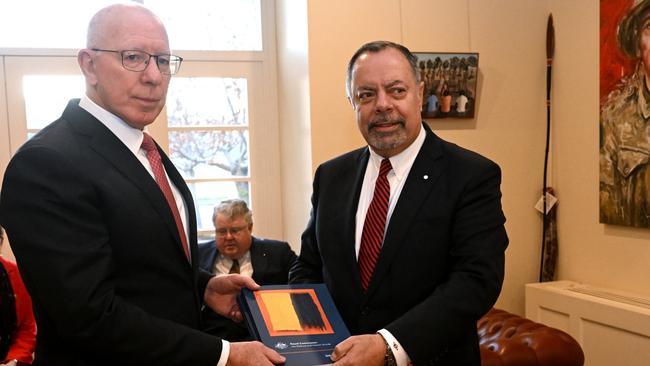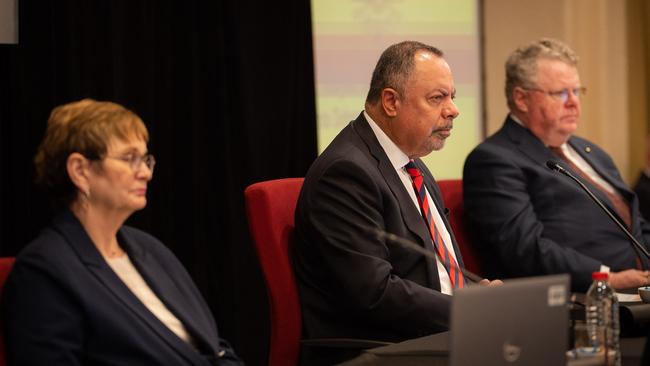Veteran suicide royal commission chair Nick Kaldas calls on defence to ‘get on-board’
The ADF and successive governments have been lashed for an alleged “relentless failure” to address the crisis of suicide eating up the military community.
The investigation into the suicide crisis roiling Australia’s military community has been “stymied and stonewalled” by defence and government bureaucracy, the man leading the Royal Commission into Defence and Veteran Suicide has said.
In a furious speech to the National Press Club on Wednesday, commission chair Nick Kaldas called on the ADF and Commonwealth to “get on-board” with the wide-ranging inquiry and questioned whether there was sufficient seriousness in leadership to address the crisis, which has taken the lives of 1600 servicemen and women between 1997 and 2020 or 20 times the number of service personnel killed on active duty.
“Despite the government establishing a royal commission and the legislature wanting certain issues investigated, obtaining critical information from Commonwealth bodies in a timely manner has been difficult,” he said.
“Our success will require government and its agencies, including the ADF, defence and DVA, to, once and for all, get on-board and act.”
Mr Kaldas said there had not been any “political interference” in the commission’s work since it launched in 2021 but defence had struggled to acknowledge there was a problem or move to address it with any urgency.

“When it comes to protecting the mental health and wellbeing of servicemen and women, the evidence this royal commission has uncovered to date suggests there’s been far too much talk and not enough action,” he said.
“Yet defence’s approach to investigating and reporting on suicides has progressed at a snail‘s pace and we are yet to find sufficient evidence of urgency in responding to these complex issues holistically – even with this royal commission on foot.
“All of this raises serious questions as to whether defence is committed to making change in the best interests of its members or whether they’re just going through the motions.”
Mr Kaldas acknowledged other commissions had hit the same “walls” in getting at information and suggested an excessively cautious legal culture in Canberra may have stopped the flow of information.
Mr Kaldas said “entrenched” cultural issues prevented the military from addressing the crisis.
“Seeking help early and engaging in effective treatments can lead to improved outcomes and prevent future problems,” he said.
“Unfortunately, putting your hand up for help in the ADF is all too often seen as a weakness, in a male-dominated culture that reveres strength.”
Mr Kaldas said he had taken his concerns public before the release of the commission’s full report, booked for June 2024, because he wanted the public and media to take more notice of the issues the commission had uncovered.

The speech also revealed one of the key upcoming recommendations from the commission: the establishment of an independent oversight body to hold government to account.
“We commissioners believe an enduring, powerful, independent body is necessary to hold government, the ADF, defence, DVA and other relevant agencies, as well as state and territory governments, to account, to make sure that they prioritise the major, long-term, complex reforms that are needed,” he said.
“This body must not only be independent, it must have the confidence of serving and ex-serving ADF members and seek direct and significant input from them.
“It must be an oversight body but not one that usurps the leadership of the DVA or ADF, nor one that absolves that leadership of its primary responsibility for veterans’ wellbeing.
“And it must have sufficient powers to deal with the issues it faces.”
The commission has held multiple hearings around the country and has received some 230,000 documents, 4165 submissions and heard from than 280 witnesses, drilling into the complex mental health challenge.



